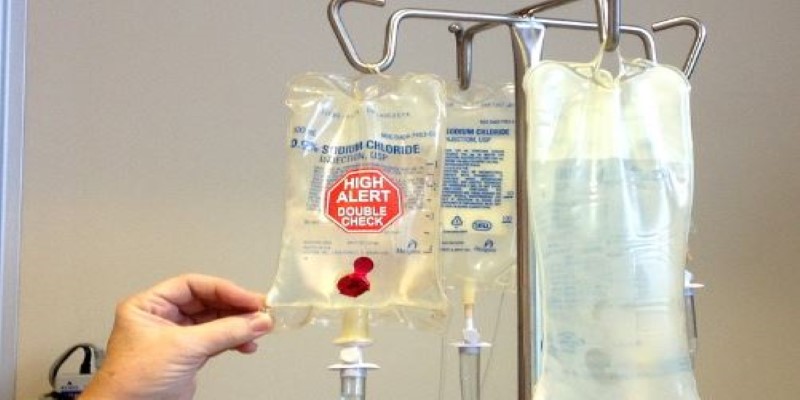Imagine drinking so much water that it actually harms yousounds strange, right? We all know that staying hydrated is crucial for our health, but there's a fine line between drinking enough and drinking too much. When that line is crossed, you might be at risk of a condition called hyponatremia.
This health issue isn't widely discussed, yet it can have serious consequences if not recognized and managed properly. In this article, well dive into what hyponatremia is, why it happens, how to spot its symptoms, and most importantly, how to avoid it.
What is Hyponatremia?
Hyponatremia, often referred to as water intoxication, occurs when the sodium levels in your blood become dangerously low due to an overabundance of water. Sodium is an essential electrolyte that helps regulate fluid balance in and around cells. When sodium levels drop too much, water starts to move into cells, causing them to swell. This swelling can be particularly harmful to the brain, leading to increased intracranial pressure and potentially severe complications.
Causes, Symptoms, and Diagnosis of Hyponatremia
Hyponatremia occurs when the body's water and sodium levels are imbalanced. Understanding the causes, symptoms, and diagnostic approaches is essential for recognizing and managing this condition effectively.
Causes of Hyponatremia
Hyponatremia primarily results from drinking excessive amounts of water in a short period, which dilutes the sodium levels in your bloodstream. However, several underlying factors can contribute to or exacerbate this condition:
Excessive Water Intake: The most common cause is overhydration. When you consume water faster than your kidneys can eliminate it, the sodium concentration in your blood drops. This is particularly a risk for individuals who drink large amounts of water during intense exercise or competitive sports, sometimes referred to as water intoxication.
Kidney Problems: The kidneys play a crucial role in regulating fluid balance and sodium levels. Chronic kidney disease or acute kidney failure can impair this function, making it difficult for the body to maintain proper sodium levels, thus increasing the risk of hyponatremia.

Hormonal Imbalances: Conditions such as the Syndrome of Inappropriate Antidiuretic Hormone secretion (SIADH) cause the body to retain water due to excess antidiuretic hormone (ADH). This hormone regulates water balance, and an imbalance can lead to excessive water retention and diluted sodium levels.
Medical Conditions: Various medical conditions can predispose individuals to hyponatremia. For instance, heart failure and liver disease can alter fluid balance and sodium levels, leading to hyponatremia. In these cases, the body's ability to manage sodium and water is compromised, making it more susceptible to this condition.
Symptoms of Hyponatremia
The symptoms of hyponatremia can range from mild to severe and often depend on how quickly sodium levels drop. Recognizing these symptoms early is crucial for prompt treatment.
Early Symptoms: Mild cases may present with symptoms such as headache, nausea, and vomiting. Fatigue and muscle cramps are also common as sodium levels decrease.
Moderate Symptoms: As the condition progresses, symptoms may include confusion, irritability, and difficulty concentrating. You might also experience swelling or bloating in the extremities, which can be an indication of fluid imbalances in the body.
Severe Symptoms: In severe cases, hyponatremia can lead to more alarming symptoms such as seizures, loss of consciousness, and coma. Brain swelling due to excess water in the cells can result in increased intracranial pressure, which is a life-threatening condition requiring immediate medical attention.
Diagnosis of Hyponatremia
Diagnosing hyponatremia involves several steps. Healthcare providers typically start with a thorough medical history and physical examination to assess symptoms and potential causes. Laboratory tests are crucial for confirming the diagnosis. A blood test will measure sodium levels and determine the severity of the condition. Additional tests may include urine analysis to check sodium concentration and assess kidney function.
In some cases, imaging studies or hormone tests might be necessary to identify underlying causes or contributing conditions.Early diagnosis and treatment are vital in managing hyponatremia. If you suspect you have symptoms of this condition, particularly if you have been drinking large amounts of water or have underlying health issues, seeking medical advice is essential. Proper management often involves adjusting fluid intake, addressing underlying conditions, and in severe cases, medical interventions to restore sodium levels and prevent complications.
Treatment and Management
The treatment for hyponatremia depends on its cause and severity. For mild cases, reducing water intake and increasing sodium intake through dietary changes or medications might be sufficient. In more severe cases, medical professionals might administer hypertonic saline solutions to restore sodium levels more rapidly.

It's important to address the underlying cause of the condition as well. For example, if a medication is contributing to hyponatremia, a doctor might adjust the dosage or switch to an alternative.
Prevention Strategies
Preventing hyponatremia involves maintaining a balanced approach to hydration. Drinking water is essential, but it's also important to listen to your body's signals. For most people, drinking when thirsty and balancing water intake with electrolyte-rich beverages during intense physical activities is sufficient.
Endurance athletes should be particularly mindful of their hydration strategies. Consuming sports drinks that contain electrolytes can help maintain sodium balance during extended exercise. Additionally, avoiding excessive water consumption in a short period is crucial.
Conclusion
Hyponatremia, or water intoxication, can result from drinking too much water and can have serious health consequences if not managed properly. Understanding the balance between adequate hydration and the risks of overhydration is key to maintaining good health. By staying informed and cautious about your water intake, you can prevent this potentially dangerous condition and ensure your body stays in optimal condition.






